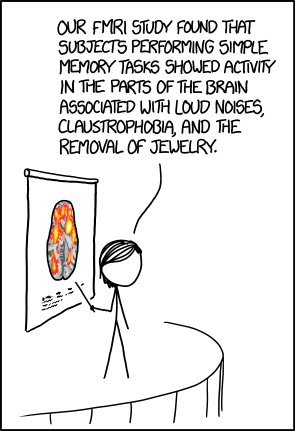Writing this post is making me a little edgy. Most of the friends I’ve made since leaving high school, I met through student activism in one capacity or another. Which means a lot of my friends are people who hold Marxism dear. That makes criticizing Marxism a painful thing for me to do. And it’s not as if I have to do it, exactly, I could just meander to the back of the crowd and mumble insincerely when my political coalition voices opinions that I find problematic in support of the positions that I am trying to help them defend. But I don’t feel that that’s entirely honest, for one thing; and also, unexamined assumptions in my worldview niggle at me. They keep me awake at night. So before I even start on what the problems are, let me talk about the parts of Marxist theory which I do agree with.
In fact, I’ll start with one that will most clearly establish where my loyalties lie. With the Marxists, and against free-market economic theory, I think that profit in a capitalist economy depends largely or wholly on the exploitation of labour. But this is going to make me look like an economic naïf if I don’t explain a bit. Which I don’t mind doing, because although I’ve said it a few times before, I think it’s one of those things that needs to be said again and again until people get it.
My name is Daniel Copeland. “Immanuel Kant was a real...” I like quirky humour, I’m incurably philosophical, and I hail from the Antipodes (New Zealand rather than Australia, but still). For my living, I take notes in lectures at the University of Otago on behalf of students with disabilities.
Monday, 22 December 2014
Sunday, 7 December 2014
Et tu, Randall Munroe?
You all know who Randall Munroe is, right? Or at least if I put the letters X, K, C, and D together in that order you know what I’m talking about? Good.
xkcd is one of the science-y-est things on the internet. But even Munroe can slip on the old “I bet those scientists didn’t anticipate the potential flaw in their method that I spotted when I read a lay account that didn’t go into all the fiddly details about controls and things” banana-skin once in a while. Here’s the strip I’m talking about:
Munroe’s mouse-over caption reads “They also showed activation in the parts of the brain associated with exposure to dubious study methodology, concern about unremoved piercings, and exasperation with fMRI techs who won’t stop talking about Warped Tour.”
Um, Randall? Do you know what the f in fMRI stands for? It’s “functional”. Functional magnetic resonance imaging differs from boring old magnetic resonance imaging in the software it uses, and what that software basically does is record changes in brain activity (well, in blood flow to particular parts of the brain) between the moment before the experimental stimulus and the moment after it. Any activity attendant on the experience of being in an fMRI machine, per se, will not change. It will be the same on both sides of the stimulus and so will cancel out.
Which doesn’t of course mean that science can’t or shouldn’t be criticized by non-experts. Just check whether they’ve figured out what you’ve figured out before you start telling people that they haven’t, OK?
xkcd is one of the science-y-est things on the internet. But even Munroe can slip on the old “I bet those scientists didn’t anticipate the potential flaw in their method that I spotted when I read a lay account that didn’t go into all the fiddly details about controls and things” banana-skin once in a while. Here’s the strip I’m talking about:

Munroe’s mouse-over caption reads “They also showed activation in the parts of the brain associated with exposure to dubious study methodology, concern about unremoved piercings, and exasperation with fMRI techs who won’t stop talking about Warped Tour.”
Um, Randall? Do you know what the f in fMRI stands for? It’s “functional”. Functional magnetic resonance imaging differs from boring old magnetic resonance imaging in the software it uses, and what that software basically does is record changes in brain activity (well, in blood flow to particular parts of the brain) between the moment before the experimental stimulus and the moment after it. Any activity attendant on the experience of being in an fMRI machine, per se, will not change. It will be the same on both sides of the stimulus and so will cancel out.
Which doesn’t of course mean that science can’t or shouldn’t be criticized by non-experts. Just check whether they’ve figured out what you’ve figured out before you start telling people that they haven’t, OK?
Subscribe to:
Posts (Atom)